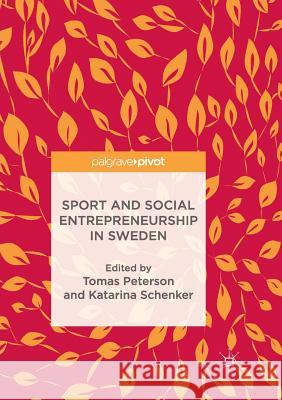Sport and Social Entrepreneurship in Sweden » książka
topmenu
Sport and Social Entrepreneurship in Sweden
ISBN-13: 9783030102128 / Angielski / Miękka / 2018 / 126 str.
Kategorie:
Kategorie BISAC:
Wydawca:
Palgrave MacMillan
Język:
Angielski
ISBN-13:
9783030102128
Rok wydania:
2018
Wydanie:
Softcover Repri
Ilość stron:
126
Waga:
0.18 kg
Wymiary:
21.01 x 14.81 x 0.76
Oprawa:
Miękka
Wolumenów:
01
Dodatkowe informacje:
Wydanie ilustrowane











